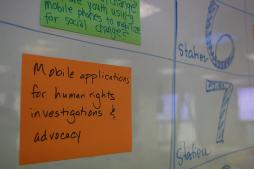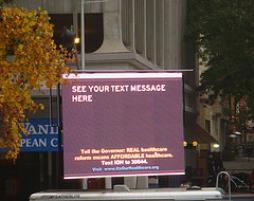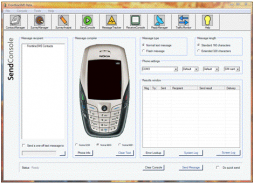wiki
Posted by SaferMobile on May 16, 2011
Activists, rights defenders, and journalists use mobile devices for reporting, organizing, mobilizing, and documenting. We have written about many of these uses for years now, describing how mobile phones provide countless benefits to activists and rights defenders. Mobile tech is relatively low cost and allows for increased efficiencies and vast reach, for example. But, there is a darker side.
Mobile Phones present specific risks to rights defenders, journalists, and activists. We believe that is is critically important to know that mobile communication is inherently insecure and exposes rights defenders and those working in sensitive environment to risks that are not easy to detect or overcome. (We provide an overview of those risks in this Primer, for instance)
To address mobile safety and security for rights defenders, we are introducing SaferMobile, to help activists, human rights defenders, and journalists assess the mobile communications risks that they are facing, and then use appropriate mitigation techniques to increase their ability to organize, report, and work more safely.
What is SaferMobile?
- Online and offline educational and tactical resources (risk evaluation tools, case studies, how-to guides, security tool reviews);
- Trainings and curricula for use in various countries and with different constituencies;
- Specific mobile security software focused on the needs of rights defenders, activists, and journalists.
As will all that we do, we believe that there certain values and principles that are paramount in this work. For SaferMobile, we are following these principles:
- We believe that skilled, trained, and knowledgeable activists, journalists, and rights defenders are key to democratic changes. We also believe that the smart and effective use of technology constitutes an integral piece of their skill set.
- The better activists, journalists, and rights defender are able to work, the more safely they are able to organize and communicate, the more likely it is that their work is effective and heard.
- We are committed to accessible, useful, actionable, and technically accurate and secure content, materials, and software.
- We are also committed to describing technological vulnerabilities in terms that non-technical users can easily understand.
- We work with activists on the ground to ensure that the content we produce addresses real uses and risks.
- We also seek responsive connections between activists and security professionals so that both are more able to assess and respond to changing risks.
- Lastly, we are maintaining information that reflects current security risks and technological vulnerabilities and is vetted for security and technological accuracy by knowledgeable experts.
Roadmap and Process
The SaferMobile project is just beginning its second Phase. Phase 1 included needs assessment with users and peers – activists, rights defenders, journalists, technologists, security experts, and mobile developers. Through this research, we outlined plans for web content, training curriculum and tools (software) and are now creating these pieces in Phase 2 of the project (May-August 2011).
Our approach is iterative and open – we work as a team to develop ideas and welcome review and comments from peers. We maintain a wiki for this initial phase that will act as a living lab for content and code as we develop both.
Posted by KatrinVerclas on May 22, 2009
With the proliferation of interest in Mobile Tech 4 Social Change Camps around the world, we have now put up a wiki to keep track of and provide resources for this growing movement of M4Change Camps. The wiki includes a detaied FAQ on how you can run your own Mobile Tech 4 Social Change camp (because this small team here is, well, very small!). Spread the love and roll a camp in your town!
Mobile Tech 4 Social Change Camps are local events for people passionate about using mobile technology for social impact and to make the world a better place.
Each event includes interactive discussions, hands-on-demos, collaborative scheming about ways to use, develop, and deploy mobile technologies in health, advocacy, economic development, environment, human rights, citizen media, to name a few areas.
Posted by CorinneRamey on Mar 04, 2008
Imagine if every member of the legislature could see a message from your constituents, just by looking out of the window. A text-to-screen campaign allows for exactly this: A large screen, placed right outside the State House, for example, that brings your constituents’ text messages to legislators' eyes.
Not only can people in front of the screen see the message, but anybody can watch a live feed of the messages on a website. "Text to screen allows people in remote locations to interact in a meaningful way with one location," says Jed Alpert of Mobile Commons, a vendor providing a text-to-screen platform.
Individuals interact with the screen by sending a text message or SMS to a short code (a five or six-digit phone number). The SMS is then displayed on jumbatron screen, as well as on a web screen.
Posted by CorinneRamey on Feb 22, 2008
MobileActive releases the first-ever comparison of do-it-yourself SMS campaign tools, designed especially for NGOs. The Guide helps NGOs get started in setting up a SMS campaign and includes a comparison of different SMS campaign software.
Over the last several years, it’s become clear that mobile phones are becoming one of the most influential devices in our social, political, and civic lives. Savvy nonprofit organizations and NGOs are experimenting with using mobile phones as persuasive devices to recruit new supporters, organize groups, and advocate for causes.
Thus far, most of the successful mobile-phone campaigns have relied on text messaging as their persuasive technology of choice. It’s the only mobile phone technology that works reliably across the majority of mobile phones in most countries. In addition, most people in most countries are familiar with text messaging.


